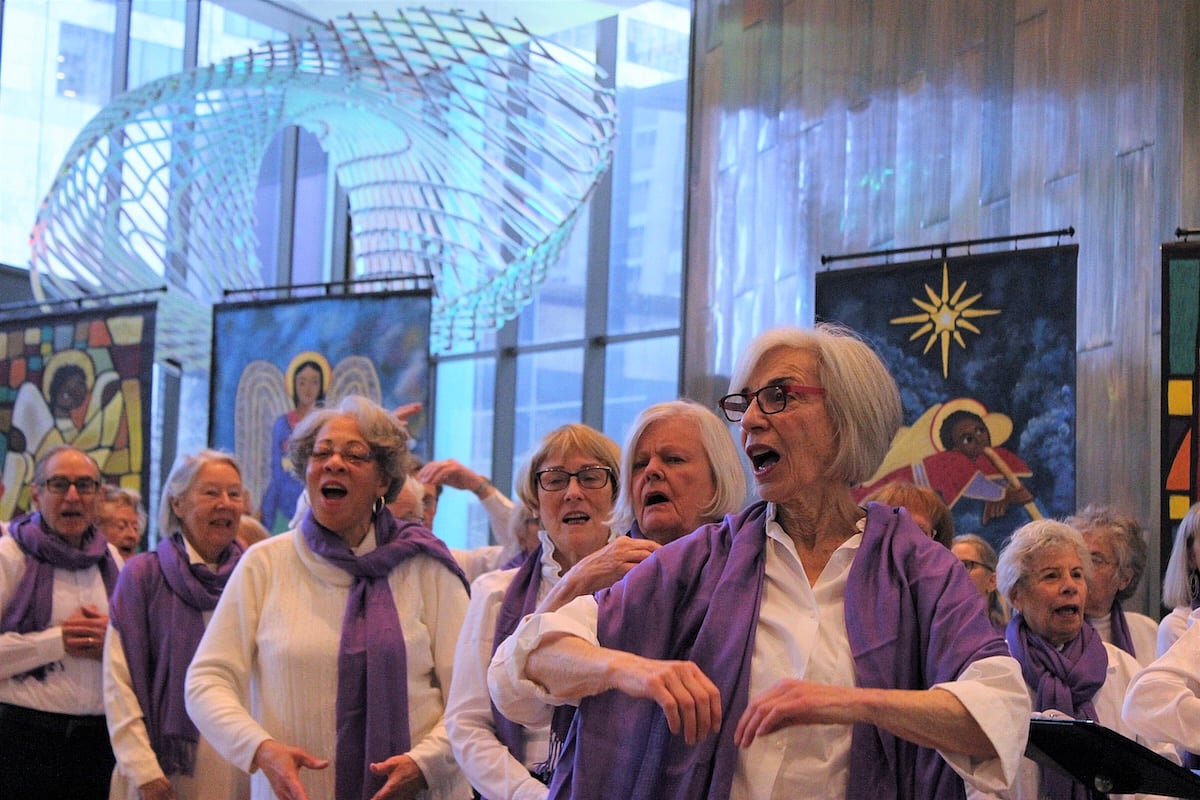Get Healthy!

- Posted April 24, 2025
Virtual Singing Programs Boost Mood, Well-Being Of Isolated Seniors
Singing can be a balm for the soul, but does it still soothe if a person is singing alone in a virtual crowd?
Yes, says a pandemic-era study that tested whether seniors received any emotional or mental benefit from participating in a virtual choir during COVID-19 lockdowns.
Isolated seniors said they felt less anxiety, better social connection, and an emotional and intellectual boost from participating in choir practice conducted over Zoom and Facebook Live, according to results published April 22 in the Journal of Alzheimer’s Disease.
“Beyond the pandemic, the study suggests virtual singing could benefit individuals in rural areas, those with mobility limitations or those experiencing social anxiety,” lead researcher Dr. Borna Bonakdarpour, director of the Northwestern University Music and Medicine Program, said in a news release.
“We found virtual group singing could provide emotional, cognitive and social support through accessible, engaging music programs for diverse aging populations,” he said.
The study involved the Illinois-based Sounds Good Choir, a choir program for people 55 and older. Prior to the pandemic, the program offered 11 in-person community-based choirs serving nearly 500 older adults weekly and more than 600 singers annually, researchers said in background notes.
During pandemic-era lockdowns in 2021, the program offered two types of weekly online singing opportunities — a sing-along series involving familiar music and a structured choir with rehearsals leading to a virtual concert.
After the yearlong series wrapped up, researchers surveyed 176 participants to see whether the virtual choir practice had any positive benefit, either for those with good brain health or for those suffering from dementia.
Prior research has shown that singing produces positive brain and body benefits — improving people’s lung capacity, posture and overall physical health even as it engages brain functions involved in breath control, emotional regulation and motor function, researchers said.
“For people with neurocognitive disorders — who frequently struggle with verbal communication — music and singing can offer alternative ways to express themselves, much like we see in individuals with aphasia,” Bonakdarpour said. “Singing familiar songs can help facilitate communication and create a comfortable, low-pressure environment for interaction and sharing.”
Nearly 9 in 10 participants (87%) reported improved well-being as a result of participating in the virtual choir, researchers said.
The positive benefits included better emotional well-being (36%); social well-being (31%); intellectual well-being (18%); a sense of normalcy or structure (12%); spiritual well-being (11%); physical well-being (7%); and a connection to the past (5%), results show.
“Participants in the group choir during the pandemic consistently described the activity as providing a sense of normalcy amid widespread disruption — a theme that emerged prominently and merits further investigation,” Bonakdarpour said.
In particular, the sing-along programs provided greater satisfaction by helping people reminisce through beloved songs, while the structured choir produced more intellectual well-being as people practiced for an upcoming concert, the study says.
“For individuals living with dementia, irrespective of external circumstances, the erosion of normalcy profoundly impacts their sense of self and contributes to anxiety,” Bonakdarpour said. “This suggests that such interventions may help restore a feeling of normalcy, supporting psychological well-being and offering a means of reconnecting with a stable sense of self.”
Researchers next plan to test this virtual choir experience in a nationwide clinical trial funded by the National Institutes of Health Music Dementia Research Network.
More information
Harvard Medical School has more on the health benefits of music.
SOURCE: Northwestern University, news release, April 22, 2025







